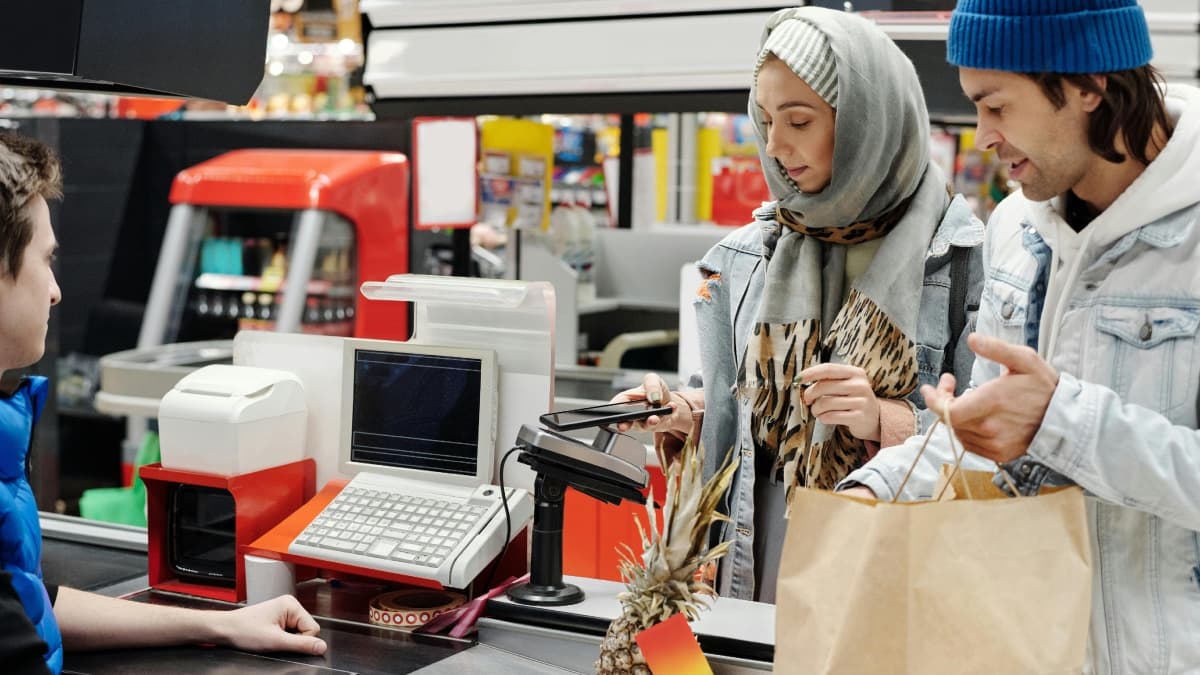The loss of human interaction now outranks data privacy concerns for Australian shoppers navigating self-checkouts and AI chatbots, QUT study finds.
What’s happening: Loss of human interaction has overtaken data privacy as consumers’ primary concern, with 78% wanting choice between staff or technology during shopping experiences.
Why this matters: The festive retail season brings increased pressure on retailers to balance efficiency with customer experience. Understanding this trust gap helps businesses design technology that strengthens rather than damages customer relationships, particularly as half of consumers believe retailers, not customers, benefit most from retail tech.
The Christmas shopping rush is underway, but Australian retailers face an unexpected challenge. Despite widespread trust in retail technology, consumers are hesitant to embrace it.
The Trust Trend Report: Consumer Perceptions of Retail Technology in Australia 2025, conducted by QUT Centre for Future Enterprise researchers Dr Shannon Colville, Dr Nadine Ostern and Jill Lovell, surveyed 500 Australians and uncovered a significant disconnect between trust and confidence.
The confidence gap
The research identified a critical distinction. While 70% of people trust retail technology, only 54% feel confident using it. Half of respondents say they’re using retail tech more than five years ago, yet scepticism remains about who truly benefits.
“Our report has found, in simple terms, that people trust the idea of retail technology more than the experience of using it,” said Dr Ostern, QUT’s Cisco Chair in Trusted Retail.
The technologies examined included familiar tools reshaping Australian retail: self-checkouts, digital receipts, AI chatbots and smart product recommendations.
“In the survey, trust was defined as believing that the technology is safe and fair, while confidence referred to people’s comfort and readiness to use it,” Dr Ostern explained.
The gap suggests Australians remain open to digital retail but feel uncertain about interacting with it. Forty-three per cent believe retailers, not customers, are the main winners from retail technology adoption.
Human connection matters most
Last year’s QUT survey identified data privacy as consumers’ top concern. This year revealed a striking shift in priorities.
“This shift suggests that consumer trust is becoming less about technical compliance and more about relational qualities and experiential value,” Dr Colville said.
Australians increasingly expect retail technologies to function securely whilst supporting experiences that feel personal, intuitive and human.
“When systems feel cold, isolating, or overly automated, trust erodes – not because the technology is unsafe, but because it lacks a sense of human recognition or care,” Dr Colville added.
The findings align with broader patterns. Recent research shows over half of young Australians now justify retail theft to some degree, with self-checkout terminals becoming particular hotspots for deliberate misuse.
Choice builds trust
Consumer choice emerged as the most consistent finding across survey data and qualitative responses. “Australians want to decide not just what they buy, but how they shop,” the report authors wrote.
This includes choosing between digital or human interaction, opting into or out of data sharing, and switching engagement modes depending on the situation. Seventy-eight per cent say having choice between staff or technology increases their trust. “Customers are not rejecting retail technology outright, they are rejecting systems that remove their agency,” the researchers noted.
Tasmania and Northern Territory consumers, along with older shoppers, show the least readiness to use retail tech. People trust specialty stores significantly more than supermarkets, with depth of knowledge and personalised service contributing to this trust.
What retailers should do
The QUT researchers provide several recommendations for transforming everyday retail technology into trust-building tools. Offering hybrid service models lets customers choose between staff or technology interactions. Smart checkouts could use cameras not just to prevent theft, but to alert customers if they double-scan an item or are about to overpay.
AI-powered recommendations should feel helpful rather than pushy, especially when transparent about data usage.
The report calls for proactive trust design and new structural roles, such as a Chief Trust Designer, to shift trust from a risk to be managed to an enabler of innovation. Dr Ostern emphasised that trust in retailers faces pressure from headlines raising concerns about pricing practices, data use and customer treatment.
For retailers navigating the festive season, the message is clear: technology alone won’t win customers. The human touch remains essential, even as digital tools become more sophisticated.
Keep up to date with our stories on LinkedIn, Twitter, Facebook and Instagram.

